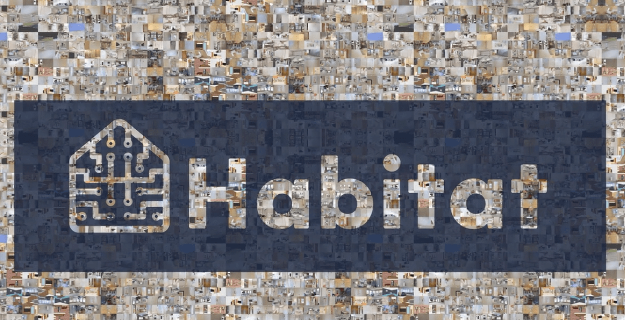Complex algorithms are required to train artificial intelligence (AI) devices & agents. That, of course, is the aim of AI — to produce a robotic device as similar to a human as possible.
However, this is far from simple. It requires specialized research, robot training systems, & dedicated scientists to even begin to make an inroad — a machine must be able to perform, based on human requests, such as being able to navigate to a specific room in a house when asked by a human to ‘‘go fetch my glasses from the bedroom”.
 To facilitate this process Facebook developers have created a ‘‘real world” simulation environment, which they’ve named AI Habitat The simulator is state-of-the-art, & is much more advanced than anything previously seen. Moreover, the social network has not only released the Facebook AI Habitat to all of the development community, but it has also made the API, which includes Replica (a powerful ‘reality’ reproduction dataset), available.
To facilitate this process Facebook developers have created a ‘‘real world” simulation environment, which they’ve named AI Habitat The simulator is state-of-the-art, & is much more advanced than anything previously seen. Moreover, the social network has not only released the Facebook AI Habitat to all of the development community, but it has also made the API, which includes Replica (a powerful ‘reality’ reproduction dataset), available.
The FB research team had said on its official blog:
….to accelerate progress in this space, we’re sharing AI Habitat, a new simulation platform created by Facebook AI that’s designed to train embodied agents (such as virtual robots) in photo-realistic 3D environments. Our goal in sharing AI Habitat is to provide the most universal simulator to date for embodied research, with an open, modular design that’s both powerful and flexible enough to bring reproducibility and standardized benchmarks to this subfield.
The simulator is unique in a number of ways:
- It’s an ultra-realistic 3D environment, specifically built to train embodied agents to maneuver & react within a given space that might be totally ‘new’ to it.
- It’s designed to assist the learning curve, which improves a robot’s assimilation of spontaneous events, & geospatial navigation without using static data that could never offer the same reproduction capabilities.
- Further, Replica produces a number of photo-realistic, ‘staged’ settings, which eclipses anything previously available as far as detail & variety are concerned. Settings that are perfect to the tiniest detail, including an indoor office, 2-story home, retail store, & many others.
- Also, the software has a modular stack, somewhat like LEGO, which means that elements can be incorporated or put aside, depending on specific training requirements.
The platform, not only works with Facebook’s Replica, it also integrates with other embodied robot trainers such as Gibson & Matterport3D which makes it super-versatile & useful to the development community at large.
Habitat-Sim, the simulator arm, renders the virtual environment for training at phenomenal speeds. While previous similar platforms worked at 100 FPS(Frames Per Second), the Facebook version reacts at 1000FPS, or 10 x faster.
Facebook AI Habitat software, vended as the Habitat-API, simplifies & standardizes training & the evaluation of embodied robots, performing navigation or natural language interactions.
The platform’s 3rd layer permits specific evaluation of tasks enacted by the robots in a comparative mode, allowing evaluation of tasks performed in differing environments or according to alternate stimuli.
These tools, all of which are available to the development community, should stimulate robust research & find answers to AI’s most pressing difficulties. With multiple inputs coming in, & with the best scientific minds applying themselves to solving current problems, AI should see a leap in development, hereunto unseen.
Image Credit: Facebook
